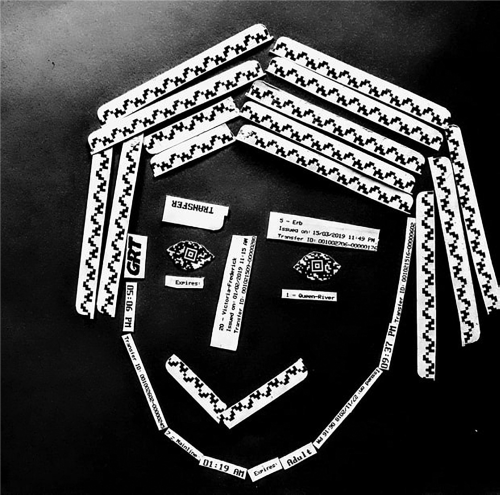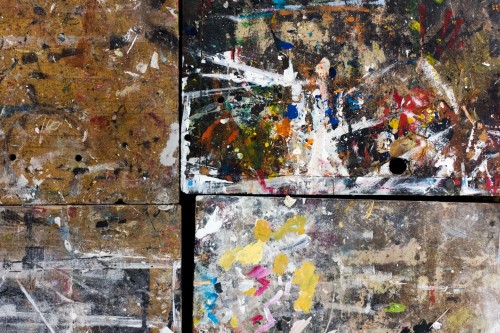She Gets There
It took her fourteen years to get back to a city. It wasn’t a big city, but hey, it had a bus. Refreshing Google Maps every minute, she prays that all her transfers connect. And there’s no street ... Read more

The Boy Who Broke the GRT
I didn’t wake up one morning at the age of 14 and decide to become the architect of a payment avoidance scheme, defrauding our local transit commission of many thousands of dollars - it just sort of... Read more

An Ode to Closure
Last year students from Cameron Heights Collegiate Institute (CHCI) filled the pages of issue i with creative writing and visual art. For issue ii, we had hoped to continue our collaboration with the school through a series of in-person workshops, and to connect with more students from high schools across Waterloo Region. COVID-19 put these plans on hold, but fortunately, one art teacher from CHCI fought to keep his students connected with us. We thank all the workers in education and students who continue to navigate complexity during the pandemic, especially those who give time and energy to facilitate opportunities for artistic development. Read more
Tiles
For Indigenous peoples across Turtle Island, the pandemic deepened pre-existing inequities. The aid that settler-colonial systems offered did not account for (or value) the importance of physical and spiritual spaces for Indigenous communities. Locally, urban Indigenous youth who were just beginning to learn about their culture were suddenly denied access to spaces they needed in order to be in relationship with each other and with the land. Building relationships with the land and with each other in a face-to-face way is an important part of reconnection and healing; removing these connections deeply impacted Indigenous youth and made it necessary to adapt art projects accordingly. To navigate this, Textile supported Pins and Needles Fabric Company, an Indigenous inter-arts company in Waterloo Region, in co-designing an art program with Indigenous youth. Through online talking circles and in-person meetings with appropriate physical distancing, youth considered the following questions: How is Indigeneity (re)claimed or denied during this pandemic? How does physical distancing and self-quarantine impact relationships to the land and to the community? Based on conversations on how youth wanted to express themselves, participants were delivered art-kits containing supplies to make tile art on wood panels to respond to these questions. The following feature shares artwork from two of the seven youth who engaged in this program. Read more

